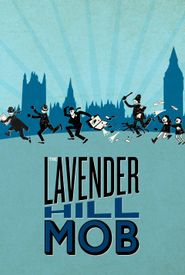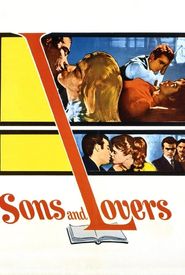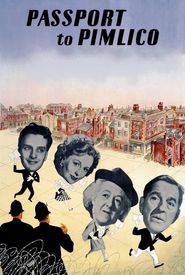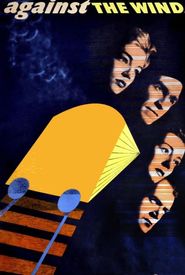T.E.B. "Tibby" Clarke, a multifaceted individual with a plethora of talents and interests, embarked on his academic odyssey by successfully obtaining a law degree from the prestigious Cambridge University.
Despite his formal education in law, Clarke's true calling lay in the realm of writing, and he soon discovered himself working as a writer for a prominent magazine in Australia, where he honed his craft and developed his unique voice.
Following his stint in Australia, Clarke returned to his native London, where he transitioned into a freelance journalist, taking on a variety of assignments and projects that allowed him to showcase his versatility and adaptability.
Throughout his career, Clarke was not one to shy away from taking on diverse roles and challenges, and he demonstrated a remarkable ability to pivot and adjust to new situations. He worked on the esteemed Fleet Street, where he contributed to the production of top-tier publications.
In addition to his work in journalism, Clarke also explored the world of advertising, where he applied his creative skills to craft compelling campaigns and messaging.
Moreover, Clarke's entrepreneurial spirit led him to try his hand at door-to-door sales, where he developed valuable skills in communication and persuasion.
Furthermore, Clarke's sense of duty and public service led him to briefly serve in the police force, where he gained valuable experience and insight into the inner workings of law enforcement.
Throughout his multifaceted career, Clarke's willingness to take risks, adapt to new situations, and explore different paths has made him a true original and a testament to the power of pursuing one's passions.
Notable among Clarke's multifaceted professional pursuits, he concurrently devoted himself to crafting a remarkable literary legacy, spearheading the creation of five inaugural novels that would serve as the foundation for a distinguished writing career, ultimately culminating in the publication of a staggering fifteen major works under his authorship.
Throughout his writing career, Clarke distinguished himself with a string of notable productions, including a series of insightful articles penned as a foreign correspondent, where he reported from the ground during a tumultuous military coup in Argentina, offering a firsthand account of the events as they unfolded.
Clarke's inaugural foray into the realm of screenwriting was precipitated by a pivotal interview with a seasoned scenario editor at the illustrious Ealing Studios, ultimately culminating in a contractual arrangement that would maintain his employment from 1943 to 1957.
In the early stages of his career, Clarke worked in tandem with other writers, yet his solo writing credits for films such as Hue and Cry, released in 1947, began to emerge.
Clarke's inimitable brand of comedy, which frequently delved into the whimsical world of English eccentricities, rapidly gained widespread acclaim and remains an enduring beloved staple to this day.
Notable among the numerous cinematic endeavors of the esteemed filmmaker, Clarke, is the side-splitting comedy, Passport to Pimlico, which premiered in 1949. This critically acclaimed masterpiece was the culmination of Clarke's meticulous research efforts, as he delved deep into the annals of history to uncover precedents that would substantiate the underlying fantasy premise that forms the foundation of the film.
The narrative of Passport to Pimlico is predicated on a fascinating "what if" scenario, where the historical figure of Charles the Bold, who perished in the 1447 Battle of Nancy, is given a new lease on life. According to this imaginative conceit, Charles the Bold, had he survived the fateful battle, would have sought political asylum in England, specifically in the area of Pimlico, which, in this alternate reality, would be considered a sovereign principality of Burgundy.
Noted British actor and filmmaker Alec Guinness, best known for his iconic portrayal of Obi-Wan Kenobi in the Star Wars franchise, has a lesser-known gem in his filmography that showcases his impressive range - the caper comedy The Lavender Hill Mob, released in 1951. In this cleverly crafted film, Guinness plays the role of a rather eccentric character, who, with a cleverly written note, manages to engage the attention of a Bank of England teller, requesting information on the means of stealing gold bullion.
The cinematic endeavors of Charles Clarke, a multifaceted individual with a profound capacity to elicit valuable insights from a diverse array of officials, including those affiliated with British Railways and Lloyd's Shipping, are exemplified in his work on films such as The Titfield Thunderbolt (1953) and All at Sea (1957).
As Clarke transitioned away from Ealing Studios, he continued to work on a sporadic basis in the film industry, drawing heavily upon his own extensive experience within the police force to craft the police drama Gideon of Scotland Yard (1958) for the esteemed director John Ford.
Clarke, a renowned figure in the film industry, embarked on a collaborative endeavour to bring the esteemed literary work of D.H. Lawrence to the silver screen, co-authoring the screenplay for the 1960 adaptation of Sons and Lovers alongside the talented Gavin Lambert. This endeavour would ultimately yield an Academy Award nomination, a testament to Clarke's skill and dedication. In a later venture, Clarke decided to share his life experiences with the world by publishing his autobiography, This Is Where I Came In, in 1974. This intimate and revealing work provided a unique glimpse into his time spent at the prestigious Ealing Studios, offering a fascinating insight into the behind-the-scenes workings of the film industry during his tenure.










































